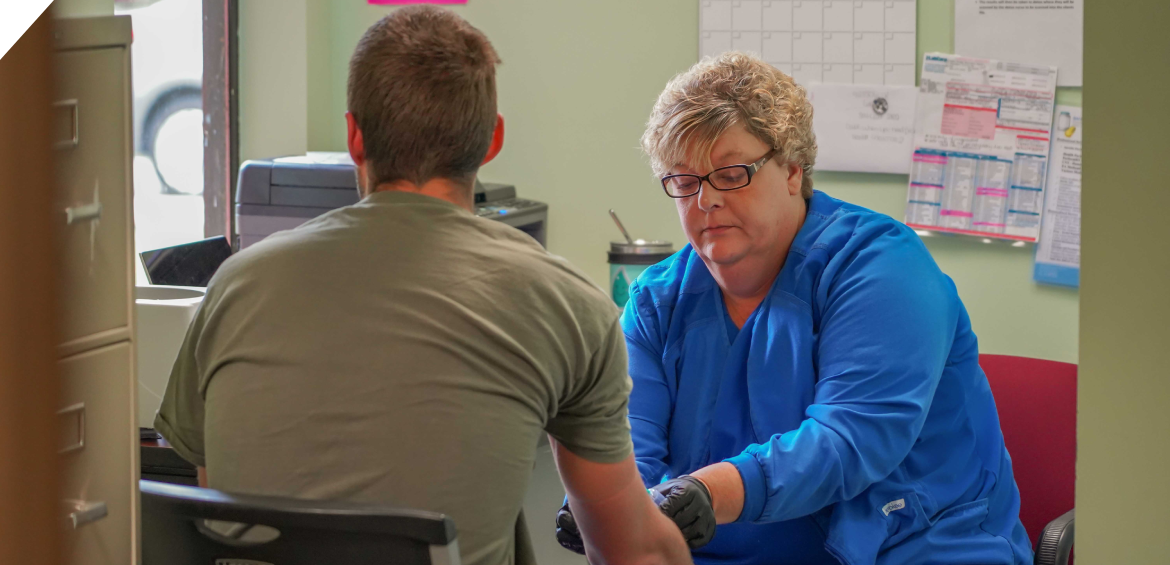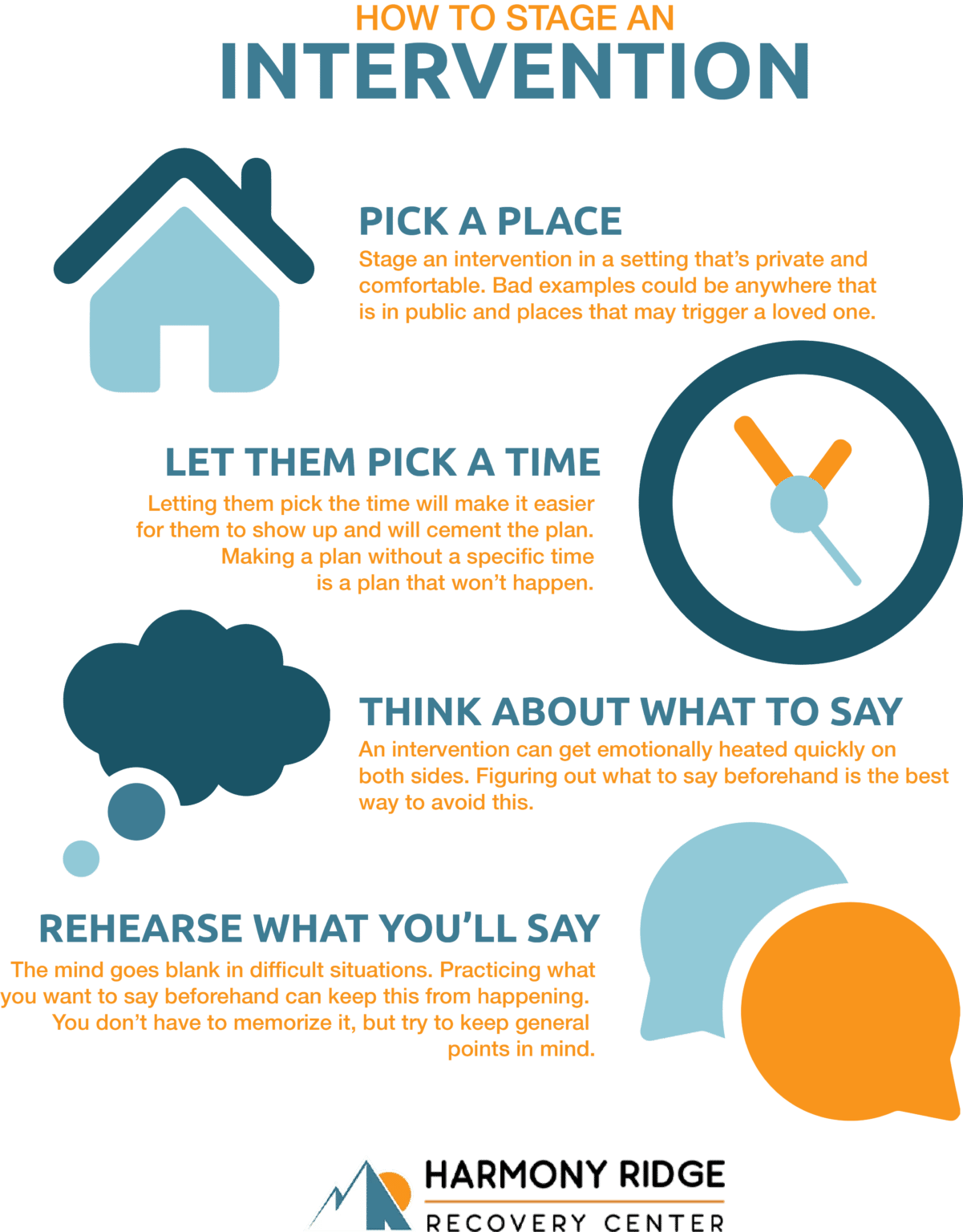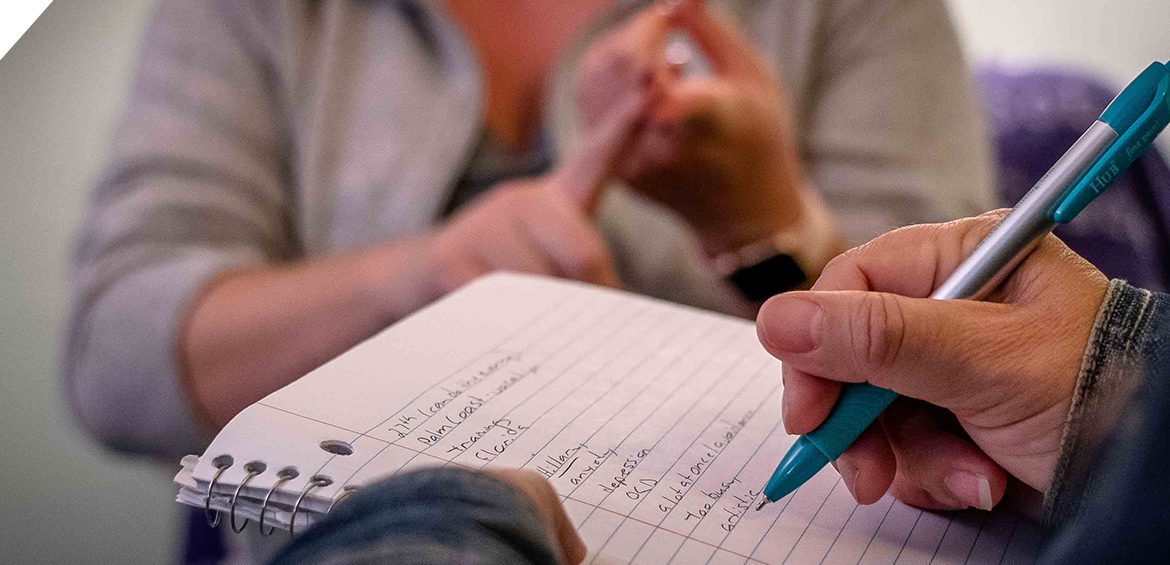Rehab For A Loved One
At our treatment center, your loved one will experience a comforting and peaceful environment that allows them to fully focus on themselves and their rehabilitation.

Learning that someone you love is struggling with an alcohol or drug addiction is awful. It’s difficult to know what to do or say when you see a loved one spiraling out of control. It can also be frustrating to see someone you love continuously hurt himself/herself.
You know your loved one needs help but are unsure if rehab is best for your loved one. You might wonder how to get someone to go to rehab without hurting the relationship. The kind and compassionate team at Harmony Ridge Recovery Center can relate to your situation.
We take the disease of addiction personally, as much of our staff are in recovery themselves. Also, many have friends or family members who have been touched by addiction. We understand how painful it is to see your loved one suffer from the disease of addiction, but it’s important to remember there is hope. Getting someone into rehab, especially in the case of loved ones, is a true and difficult act of love.
What To Expect When Getting Someone Into Rehab
Getting someone into rehab may be scary because you don’t understand what it means. What will happen once they get there? Will you be involved in the healing process? What should you expect?
While the process looks different for every incoming patient, there are programs each will generally go through. It typically starts with a detox program, will lead into residential treatment, and end with an outpatient program. Additionally, aftercare is crucial to lasting recovery.
Detox
Residential Treatment And Therapy
The next level of care following detox is residential treatment. Also known as inpatient treatment, residential treatment provides a highly structured client-specific treatment plan that provides cognitive-behavioral therapy (CBT). CBT includes private, couple and group/family therapy sessions, counseling, coping tools and relapse prevention under the supervision of our licensed medical professionals.
Other Forms Of Therapy Include:

- Dialectical behavior therapy (DBT): Similar to CBT, but different. Focuses more on validating patients and finding the root of their emotional vulnerability.
- Motivational enhancement therapy (MET): This kind of therapy is very effective for patients with a co-occurring disorder, AKA dual diagnosis. It shows patients how to rethink their negative thoughts to inspire positive/healthy actions.
- Psychodynamic therapy: People develop addictions for several reasons. Sometimes it’s to mask painful feelings. This kind of therapy helps patients discover how their subconscious plays a role in addiction.
- Trauma recovery therapy: Unresolved trauma can lead to a substance use disorder. Trauma recovery therapy lets patients move past their trauma and on to healthy coping mechanisms.
- Holistic therapy: This kind of therapy is a general term for alternative therapy. Trained professionals will facilitate the healing process through natural methods. Some examples include exercise, art, and yoga.
There are a variety of therapies that patients at Harmony Ridge may be a part of. Patients may even combine therapies, like holistic and DBT, for the most effective solution. Around 40-60% of recovering addicts will relapse at one point. Finding the right form of therapy and treatment overall can reduce the chance of relapse from happening.
Outpatient Programs
After completing rehab, your loved one can continue to our next level of care, known as outpatient programs. We offer intensive outpatient programs (IOPs) and a partial hospitalization plan (PHP). Programs such as these are perfect for patients who have other obligations outside of rehabilitation.
Therapy continues during a PHP and IOPs. However, patients can go home at the end of the day. This provides a healthy transition from a 24-hour intensive treatment program to an organized treatment plan where patients prepare themselves for a full transition back to normal life.
Harmony Ridge also offers general outpatient programs, which are the least intense form of therapy among other options. For this reason, we’d only recommend this option for patients who have completed residential treatment or a more intense form of outpatient treatment (like IOP or PHP). Otherwise, the treatment may not be as effective.
Contact Harmony Ridge Today!
The first step toward achieving recovery is to reach out to one of the rehabs in WV that can get you on the track to recovery. Our admissions team is available 24 hours a day, 7 days a week, 365 days a year. Give us a call today!
Contact Us TodayHow To Get Someone To Go To Rehab As A Loved One

It’s more than uncomfortable to talk to a loved one about going to rehab. It’s even more uncomfortable getting someone into rehab when they don’t want to go or haven’t thought about it. Talking about the option of rehab to a loved one struggling with a substance use disorder is one way for them to get the help they need quicker.
It might be best to stage an intervention instead of a casual conversation. An intervention is a strategy to help a person change their attitude and/or beliefs toward something. In this case, it would be the idea of getting help with drug addiction. It’s a combination of strategies and elements to get the desired result. So, planning an intervention involves certain steps.
7 Basic Steps For Planning An Effective Intervention For Addiction Victims
1. Have A Brief Conversation About Your Worries.
The last thing you want to do is blindside a loved one with an intervention. Make sure they have some idea that you’re aware they have a substance use disorder and that you think they should get help. Make sure that they’re sober when you talk to them about it.
2. Pick The Place To Hold The Intervention.
It’s important to stage an intervention in a setting that’s private and comfortable. Bad examples of settings to hold one would be anywhere that is in public and places that may trigger a loved one’s desire to use drugs and alcohol. Parks, bars, and clubs should be avoided. A house would be most ideal.
3. Ask Them To Pick A Time To Meet Up.
Family members and friends of a loved one with a drug or alcohol addiction should pick the path of least resistance. That means letting their loved one with an addiction pick a time that’s best for them. Letting them pick the time will make it easier for them to show up and will cement the plan. Making a plan without a specific time is a plan that won’t happen.
4. Come Up With A Brief Outline Of What To Say.
An intervention can get emotionally heated quickly on both sides. Figuring out what to say beforehand is the best way to avoid this. You can talk about how their actions have hurt you and why you think an addiction treatment center would be able to help them. Try to stay clear of emotionally charged statements and placing all the blame on them.
5. Rehearse What You Want To Say Before The Intervention.
The mind goes blank in difficult situations. Practicing what you want to say beforehand can keep this from happening. You don’t have to memorize it, but try to keep general points in mind. Also, it might be beneficial to come up with responses to objections they might have about going to rehab.
6. Ask People Who Have Been Hurt By Your Loved One’s Addiction To Attend The Intervention.
A list of people may include mutual friends, family members, coworkers, or even teachers (especially in the case of younger people). Addiction is a sensitive issue. It’s best to choose people that have expressed their worries and want to help. It wouldn’t be a good idea to choose those who are unaware and unaffected by the situation.
7. Consider Professional Help In Staging An Intervention.
At the end of the day, you’re not an expert in staging interventions. That could result in less effective communication and potentially a severed relationship. Rehabs often have professional services to help loved ones hold an intervention.
Can The State Help Getting Someone Into Rehab?
When a loved one refuses to get treatment for a drug addiction, West Virginia has laws put in place to help getting someone into rehab. The commission that can get a loved one into a rehab without their consent is the West Virginia Judiciary under the cause of mental hygiene.
The best way to find out more information on it is to look at W.Va. Code Chapter 27, Article 5. A simple online search will pull up this section within the state’s legislature. Once you’re familiarized with the content, you can fill out a form that will be reviewed by the mental hygiene commissioner, circuit court judge or magistrate.
The Form Must Be Notarized And Asks Questions Such As:
- What is the respondent’s basic information?
- What is your basic information?
- How are you related to the respondent?
- Do you believe the respondent has an addiction or mental illness?
- How long have they shown signs of addiction and mental illness?
- Can you provide examples of why you might think they have a substance use disorder?
- Do you believe the respondent is at risk to hurt himself/herself or people around them?
Questions such as these can help a court judge whether or not it’s appropriate for the state to involuntarily admit a loved one to a state hospital or rehab. Respondents that the West Virginian judiciary system finds unable to function without help will be taken against their will, but for the better. They might be asked to go to court if it’s unclear if they should be involuntarily admitted.
How Harmony Ridge Can Help Loved Ones
Addiction is a chronic disease. Just like heart disease, diabetes, or cancer, addiction cannot be cured. But, it can be treated. At Harmony Ridge Recovery Center, we combine evidence-based practices with traditionally proven addiction treatment methods.
As a nationally-recognized substance abuse treatment center, Harmony Ridge Recovery Center believes that in order to fully recover from the disease of addiction, the patient must focus on his/her entire mind, body and spirit. Our beautiful and serene treatment center provides the perfect setting for your loved one to focus 100% on himself/herself and rehab.
Harmony Ridge Can Help Getting Someone Into Rehab In WV
The idea of seeing a loved one enter an inpatient facility for drug or alcohol addiction can be scary. However, this is the best solution to combat your loved one’s addiction. Remember, addiction is a medical disease and should be treated by medical professionals. Just like you’d want a loved one diagnosed with cancer to seek treatment from an oncologist, you want your loved one to receive treatment from experienced addiction professionals.
Research shows that individuals who enter and remain in treatment can manage their addiction and quality of life. Are you ready to see your loved one break free from addiction and live a fulfilling life of sobriety? Contact us today!
References:
https://www.drugabuse.gov/publications/drugs-brains-behavior-science-addiction/treatment-recovery
https://www.wvlegislature.gov/WVCODE/Code.cfm?chap=27&art=1
http://www.courtswv.gov/lower-courts/mental-hygiene/index-involuntary-commitment.html
Jump To Section
Begin Your Journey to Healing Here
Ask me about recovery, I can help you!
Our recovery specialists are standing by 24/7 to help you or your loved one.
Or call us: 




